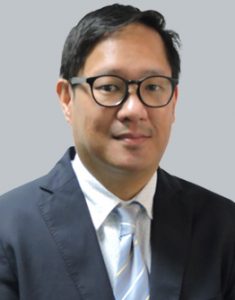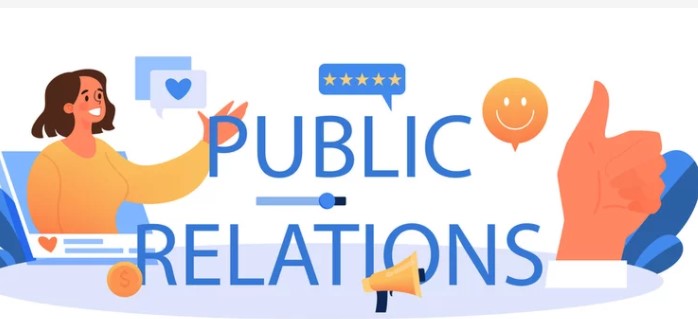 After defeating the leader of the far-right Rassemblement National party, Marine Le Pen, with 58.6% of the vote in the second round of French elections, the centrist incumbent Emmanuel Macron has delivered crucial democratic lessons for the world.
After defeating the leader of the far-right Rassemblement National party, Marine Le Pen, with 58.6% of the vote in the second round of French elections, the centrist incumbent Emmanuel Macron has delivered crucial democratic lessons for the world.
On April 10, Macron received 27.85 percent of the vote, Le Pen 23.25 percent, and leftist leader Jean-Luc Melenchon 21.95 percent. Upon closer look, the differences in votes between the three contenders are minor.
There is a clear distinction between Macron and Le Pen. Macron’s vision is global in scope from an economic standpoint. He intends to distribute 30 billion euros in funding to support national start-ups, for example. Meanwhile, Le Pen highly prioritizes domestic industry protection by renegotiating free trade agreements and subsidizing the domestic industry.
Regarding foreign policy, Macron believes in the European Union (EU, while Le Pen, on the other hand, wants to reform the EU. Hence, it would no longer be a supranational body but an assembly of nations.
However, the two have a lot in common. On the issue of immigration and citizenship, Le Pen puts forward the principle of “French First”, with the jargon of “stop immigration from getting out of control”, for example, revoking the temporary permit of immigrants who have been jobless for a year. In the 2017 election, Macron showed a similar attitude by reforming the asylum-seeking process, which aims to expel unqualified immigrants.
Furthermore, on security issues, Macron wants to double the number of police units and close places of worship exposed to radicalism. Meanwhile, Le Pen promised to prioritize security issues, one of which was by prohibiting the use of the hijab for women. A question emerges not only about what differentiates them but also the political views which unite them. It is called Gaullism.
The Politics of Gaullism
Gaullism is the mainstream political attitude and view of Charles de Gaulle (1890–1970), the hero of the war and the first president of the Fifth Republic of French. All French politicians from the whole spectrum gravitated towards him. In the 2012 election, both left-wing candidate Francois Holland and right-wing rival Nicolas Sarkozy quoted De Gaulle’s remarks.
In fact, an official photo of President Macron shows him behind a table covered with War Memoirs, a book by De Gaulle. Le Pen believes that De Gaulle was the leader who saved France from invading foreign countries. Even the leader on the left, Melenchon, said that De Gaulle was spiritually in the same camp as the movement he was leading.
There are 3,600 locations in France bearing the name De Gaulle. In the 2010 national poll for the most influential people in France, de Gaulle won 44% of the votes and defeated Napoleon Bonaparte with 14% of the votes (Jackson, 2018: 1).
De Gaulle is reportedly not just a national hero but a national identity.
De Gaulle reportedly went beyond a national hero but a religiously worshiped national identity, according to novelist André Malraux.
So why did Gaullism become a significant ideology of French politics? In the author’s opinion, it’s ambiguous at best. Although de Gaulle comes from a traditionally devout Catholic family, he acknowledges that essential elements of his religion are not only religious beliefs but also history and geography.
As a conservative, he often spoke like a revolutionary. As a Westerner, his anti-American attitude brought him closer to the colonized nations and the left.
In modern times, misunderstandings are not the real cause of division; on the contrary, the clarity of position would immediately delineate “them and us”. This division and difference can be understood even at the grassroots level. This is where ambiguity can maintain cohesiveness, even though it is problematic.
De Gaulle was most concerned about the emergence of division within his country. Perhaps this fear gave him the idea that France was a great country (Grandeur). On the first page of his War Memoirs, he describes France as the “queen of the countries.”
Therefore, Gaullism can be understood as a form of French nationalism, which is practical and syncretic in its vision of national greatness.
Gaullism and Pancasila
There are at least three things to note about Gaullism and the French presidential election. First, given that the entire political spectrum of France considers themselves Gaullist, it can be said that France does not have a single nationalism but rather myriad versions of nationalism.
Therefore, anyone who becomes a French leader must demonstrate the quality of his/her Gaullism by being able to accommodate a variety school of ideas such as ethnicity and culture that has helped shape nationalism.
Second, given that the majority of election candidates subscribe to Gaullism. Therefore, for the election winner, it is unrealistic to expect a radical revisionist attitude from competitors’ programs during the campaign.
Anyone who becomes a leader in France must show the qualities of his Gaullism.
Finally, De Gaulle’s vision of Europe is “Europe of the Fatherland”. It is intended to be an association free of American influence. De Gaulle showed this attitude by refusing the United Kingdom’s application to join the European Community (EC) in 1961 and temporarily withdrawing France from NATO on June 21, 1966.
Reflecting France’s attitude towards the world’s superpowers, which is quite close to Indonesia’s non-aligned tradition, could make France a strategic partner for Indonesia, especially in the Indo-Pacific region.
This idea is strengthened by the Indo-Pacific Strategy Book published by the French Ministry of Foreign Affairs and Europe (2022). This book shares the same values shared by the Indonesian government, such as the mainstreaming of non-coercion measures, the significance of ASEAN, and the emphasis on the international law of the sea (UNCLOS) 1982.
On the other hand, Gaullism, which tolerates and welcomes a variety of thought, certainly reminds us of Pancasila as an open ideology consisting of Godhead, nationality, internationalism, democracy and welfare. Unsurprisingly, President Sukarno met De Gaulle four times between 1961 and 1965. Hopefully, in the future, this historic proximity could become more intertwined at different levels and interests for Indonesia’s security and glory.
Rhesa Sigarlaki, formerly Senior Consultant at Kiroyan Partners, international law observer.
Source: Kompas.id, May 7, 2022.
Download the clipping here.



